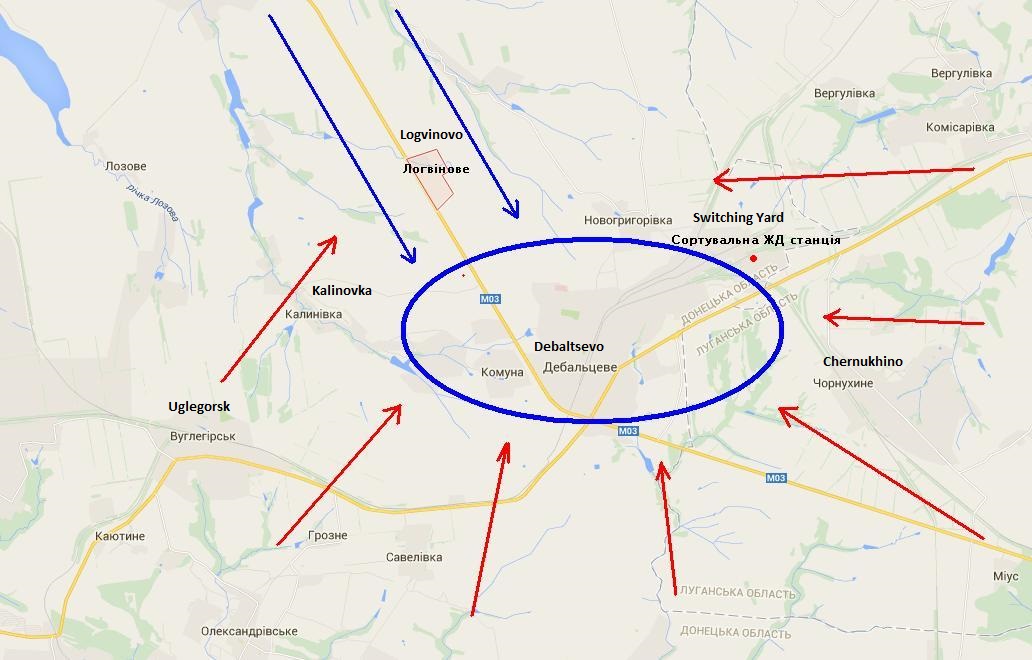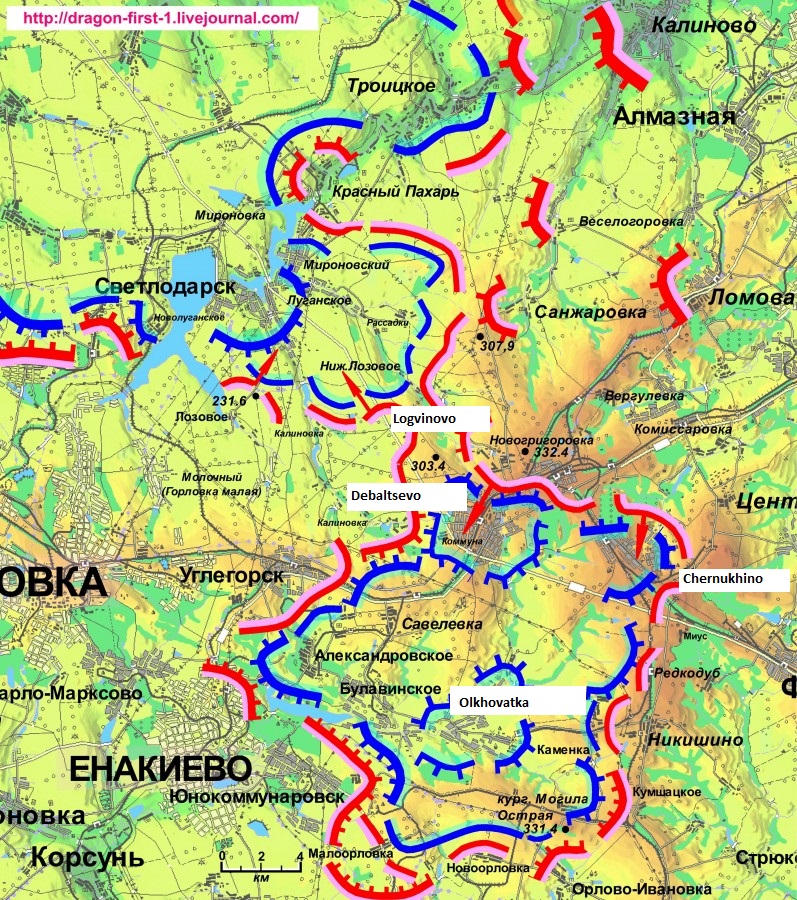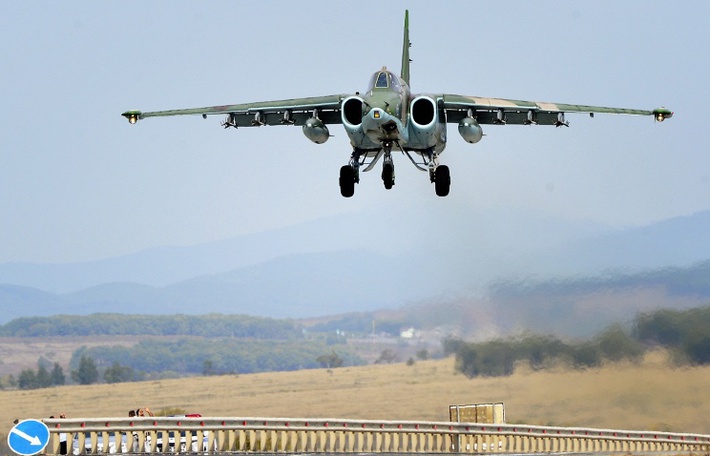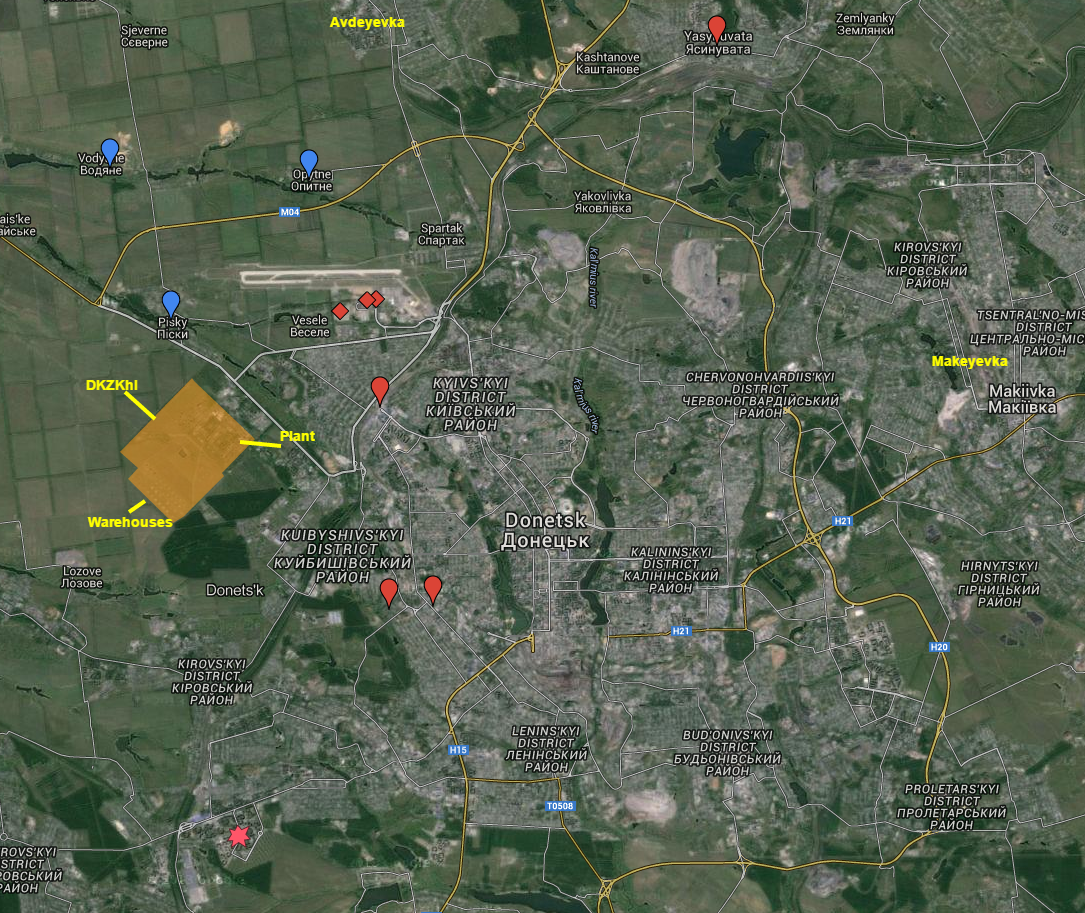Yesterday’s live coverage of the Ukraine conflict can be found here. An archive of our liveblogs can be found here. For an overview and analysis of this developing story see our latest podcast.
Please help The Interpreter to continue providing this valuable information service by making a donation towards our costs.
For links to individual updates click on the timestamps.
For the latest summary of evidence surrounding the shooting down of flight MH17 see our separate article: Evidence Review: Who Shot Down MH17?
The article, written by Damien Sharkov, has already been changed, but some are arguing it still contains misleading information. Here is the opening to the Newsweek article:
The Ukrainian parliament has approved a motion to allow commanders in the armed forces to fire at army deserters and use force against servicemen for “negligence” or “drinking alcohol” while on duty.
Julia Davis has written a detailed explanation of the problems with the Newsweek article, which has caused Newsweek to remove several passages and change several others. Still, Davis reports, the article is largely inaccurate and completely misleading:
With respect to deserters, Article 6 of the Disciplinary Code is amended to allow the commander to arrest any soldier for desertion or abandonment of their military unit or place of service. Going AWOL or a failure to report to duty after vacation for up to three days will cause an arrest and detention for up to 5 days. Absences without leave for three to 10 days, or several absences during the same year, will be penalized by detention for a period of 5 to 10 days. Prescribed penalties are quite different from the blatant lie disseminated by RT and Newsweek, claiming that deserters will be shot on sight.
Drinking alcohol while on duty will be punishable by a fine, or arrest and detention for up to 5 days. Again, this penalty is quite different from RT’s and Newsweek’s malarkey about “drastic measures” and bogus claims that drinking alcoholic beverages will now be “punishable by force.” Incredibly, the Human Rights Watch re-published these bogus claims, disseminating them on Twitter to the organization’s 1.65 million followers with a statement: “New Ukrainian law would authorize summary execution of deserters – a clear rights violation.” Accusing the largest country in Europe of summary executions is a very serious allegation that should have been independently verified by the Human Rights Watch.
As Davis also points out, this is not the first time Newsweek has been criticized for publishing articles by Sharkov about Ukraine. In an article titled “Ukrainian Nationalist Volunteers Committing ‘ISIS-Style’ War Crimes,” Newsweek has now posted this correction:
Correction: This article originally mistakenly stated Ihor Kolomoyskyi offered a bounty for each killed ‘saboteur’, when it was in fact for each captured ‘saboteur’. This has been corrected and Newsweek apologises for the error.
Just like on the new article, the correction is at the bottom.
Sharkov has been repeatedly criticized on Twitter for his article, but for the last 24 hours has been saying that he is reviewing the article, and its title, with his editors. This was sent 24 hours ago:
According to a sparse Linkedin page which we have yet to confirm belongs to the author in question, he received a Bachelor’s degree at King’s College London in 2014. He has no official biographical information on his Newsweek profile.
We have reached out to Sharkov for comment, but as of publishing this he has not yet responded.
Le Monde also reports that the amount of Russian provocations near NATO airspace have grown exponentially in the last 11 months, corresponding exactly with Russia’s military intervention in Crimea and then eastern Ukraine.
— James Miller
U.S. President Barack Obama and German Chancellor Angela Merkel are giving a joint press conference right now. Obama started his comments by discussing the economy, and then he moved on to discussing Ukraine. Obama started his comments on this crisis by speaking at length about how Russia has broken its word and has not abided by the Minsk agreements. But then Obama said that a diplomatic solution is the only way forward.
Merkel started her Ukraine comments by stressing the importance of
maintaining Ukraine’s territorial integrity and the territorial
integrity of Europe, which Merkel said Russia has broken on two occasions: in Crimea, and in the Donbass. “We continue to pursue a diplomatic solution, though we have seen setbacks,” and the world will now see whether both sides are interested in pursuing diplomacy.
The
first question from the press was about whether these two powers would send arms to
Ukraine, and what the path forward would be if the talks this week
failed. Obama started by making a broader point — the possibility for a
military solution to this problem has always been “low,” and “given the
length of the Russian border with Ukraine… the history of Russia and
Ukraine,” Russia could invade Ukraine if it wanted to. The key, then, is
to make Russia pay for its interference. The strategy now is that if
the costs are high enough then Russia will pursue a diplomatic solution,
and if the talks are not successful then the “costs” will need to be raised.
The key
statement — if diplomatic talks fail, then Obama is considering
military aid to Ukraine. But he stressed that no decision on this has
been made. Most of the “costs” discussed in this conference have been economic.
Obama went on to discuss the need to help the Ukrainian
economy recover and reform. “One of the most important things we can do
to help Ukraine is to help them succeed economically,” Obama said.
“If diplomacy fails,” Obama went on, then Europe and the United States
are on the same page (though there may or may not be “tactical
differences”) — costs need to be raised on Russia to deter them
further,
Merkel then made a very interesting statement: “If
success is not possible,” then the United States and Europe will have to
reassess what needs to be done. However, on the issue of arming
Ukraine, Merkel said “my position on this has been made known.” In other
words, she will not support such a deal.
Merkel also said that the most important thing is to show the world that Germany and the United States are “very close” on this issue, describing the transatlantic partnership as crucial to world security.
Merkel said that the path forward was local elections in the Donbass in accordance with the constitution of Ukraine.
Obama did, however, seem to push back on the point of weapons a little by saying that any weapons given to Ukraine would be defensive, given to dissuade Russia from pushing deeper into Ukraine. He also stressed that his decision has not yet been made.
“We are not looking for Russia to fail. We are not looking to keep Russia surrounded or contained…” Our purpose, Obama explained, is to have Russia be a constructive global partner in solving world problems, and Russia’s efforts in Ukraine have undermined its economy and its global standing in the world.
The conference continues, but the topic has shifted to Iran’s nuclear deal, one area where Obama hopes that Russia will be a cooperative international partner in brokering any deal.
— James Miller
At 14:42 GMT, Semyon Semyonchenko, an MP and the commander of the Donbass Battalion, wrote on his Facebook page that fighting was under way near Logvinovo, on the vital highway linking Debaltsevo with Artyomovsk.
Severing this route and completely isolating the Ukrainian-held town of Debaltsevo is the aim of the Russian-backed offensive in the area.
Pyotr Shkulinov suggested, in a piece for LIGA BusinessInform, that Russia would attempt to complete the encirclement of Debaltsevo ahead of the peace talks on Wednesday, Febuary 11.
Shkulinov wrote that, while Russian troops had reached the highway at Logvinovo, they had been repelled by Ukrainian army and Donbass Battalion fighters, who had been reinforced with armour.
In addition, he wrote that, as of 14:00 (12:00 GMT) today, reports indicated that Russian and separatist forces had taken the switching yard on the railway line to the north-east of Debaltsevo.
Meanwhile Eduard Basurin, the deputy military commander of the self-proclaimed ‘Donetsk People’s Republic,’ claimed that separatist forces had taken the villages of Kalinovka and Redkodub.
Video footage also showed fighters (in a location we have not so far geolocated) claiming to have captured Redkodub.
Shkulinov produced this basic map, to which we have added English annotations, to illustrate the situation today:

This meanwhile is a map from the pro-separatist Dragon_first_1 blog, which, while perhaps skewed, does in fact give more territory south of Debaltsevo to the Ukrainians than Shkulinov’s:

— Pierre Vaux
Yuri Butusov, editor at Censor.NET, has quoted more from senior lieutenant Lamaka, a deputy company commander in the 40th motorised infantry battalion fighting near Debaltsevo.
Lamaka responded to doubts regarding the veracity of his report that Russian Su-25 attack jets had conducted an air strike on Ukrainian defensive positions.
The Interpreter translates:
“To anyone who thinks that we made up the report of the airstrike, I invite you here outside Debaltsevo. You can check by inspecting our defensive positions. I guarantee an unforgettable experience.”
Lamaka said that, immediately after the first aircraft flew over, they were subjected to a wave of heavy bombardment. He added that his whole unit had observed the aircraft, and that he would file a full report once the shelling stops.
Lamaka also noted that it was only and immediately after the Censor.NET report was published that their military commanders re-established communications with his unit, which had been down for five days. For the first time in five days, his unit was provided with effective artillery support.
TSN journalist Andriy Tsaplienko wrote on his Facebook page that, while he could not confirm the air strike on the 40th battalion’s positions, observers at other Ukrainian positions had maintained that a pair of Su-25s had been seen over the Debaltsevo area.
— Pierre Vaux
As we’ve just reported, two different (and usually reliable) Ukrainian news websites have both reported citing both the deputy commander of a company in Ukraine’s 40th motorized infantry battalion, and soldiers in the 92nd brigade, Russian Su-25 jets have conducted airstrikes near Debaltsevo. At this hour we have no hard evidence that there were Russian airstrikes, and as we’ve noted below the Ukrainian military spokesperson Andriy Lysenko is denying the report (UPDATE: in fact, the NSDC has said it “does not confirm” the news, rather than denying it). If Ukraine denies the report, that means that we should dismiss the report, right?
The problem is that the Ukrainian government has denied airstrikes in the past despite evidence, including video, that appeared to show Russian aircraft firing on Ukrainian naval vessels on the last day of August, just as the Minsk deal was being negotiated.
In the last weeks of August a steady stream of Russian soldiers and equipment had been pouring across the border in what is popularly known as the Russian invasion of Ukraine (perhaps now we might call this the first Russian invasion of Ukraine). The Russian-backed militants and Russian soldiers were winning victory after victory, but suddenly, in the last days of August, there was a small victory for Ukraine. Ukrainian forces that were surrounded near Ilovaisk had broken free and escaped. We have since provided evidence that Russian troops and vehicles had crossed the Russian border and surrounded the Ukrainian forces, a fact which made the Ukrainian soldiers’ escape even more significant:
The official reports from the Ukrainian military say that Russian tanks fired missiles from the shoreline which hit the ship. Military experts we spoke to at the time found this explanation to be highly unlikely. The Interpreter‘s managing editor, James Miller, directly asked Colonel Andriy Lysenko, the spokesperson for the ATO (Anti-Terror Operation) about the incident at the time. Lysenko said that the vehicles were hit by missiles fired from tanks and “perhaps” what was visible in the video were Ukrainian aircraft inspecting the damage.
Why would Ukraine cover for Russia in August? While the Ukrainian military was raising alarm about Russia’s direct involvement in the fighting in the east, many of our sources in Ukraine, including some who were in the Ukrainian military, and our own analysis of available evidence suggested that Ukraine was downplaying the Russian threat.
The reason? Ukraine was struggling to simultaneously convince the outside world that the stakes were very high while simultaneously avoid sparking panic, or even an outright invasion of Ukraine by the tens of thousands of Russian soldiers which were stationed on its borders. Our analysis at the time suggested that the Minsk peace deal was agreed upon by Ukraine to stop the low-scale Russian invasion and prevent a full-scale one, while buying Kiev time to organize, draft more soldiers, and seek international support.
Russian airstrikes may have been conducted during the Minsk negotiations to convince Ukraine that it needed to sign the deal.
Interestingly, Ukraine is almost in the exact same situation right now. Ukrainian soldiers have been desperately fighting to avoid being completely surrounded at Debaltsevo, and they have thus far succeeded, though at great cost. There are parallels between this and Ilovaisk. Peace talks are once again underway which might halt the conflict and alleviate the Russian invasion. German Chancellor Angela Merkel, who has made it clear that she does not want a conflict with Russia and will not endorse any plan to give arms to Ukraine, is in Washington to speak with U.S. President Barack Obama before the larger peace talks which are to be held on Wednesday.
And just like in August, the Ukrainian military’s story has some holes, since, as we’ve reported below, Colonel Lysenko says that Russian Su-25s can’t operate in bad weather, but it’s clear that Russian pilots train for just this situation.
As far as today’s incident is concerned there is no conclusive proof that Russian jets have been spotted inside Ukrainian airspace. We just don’t know. But as history has shown us, the Ukrainian government’s denial of the incident is not evidence either way.
— James Miller
LIGA BusinessInform reports that Ukrainian soldiers from the 92nd brigade have told them that Russian aircraft have conducted an air strike near Debaltsevo.
The Interpreter translates:
“Confirmed report of two Russian aircraft. They conducted an air strike on our positions on the outskirts.”
The 92nd mechanized brigade are, LIGA reports, defending the eastern side of Debaltsevo against Russian-backed forces.
Meanwhile Censor.NET reports that the deputy commander of a company in the 40th motorized infantry battalion, senior lieutenant Lamaka, told their correspondent that, at around 13:00 (11:00 GMT), two Russian Su-25 attack jets had struck the battalion’s positions near Novogrigroevka.
Lamaka later told Censor.NET that, at 14:00 (12:00 GMT), four Su-25s struck a Ukrainian defensive position outside Debaltsevo.
“We need protection against air strikes. This is already the second air raid of the day.”
The Ukrainian military leadership would not, LIGA reported, confirm the reports of air strikes.
Andriy Lysenko, spokesman for the Ukrainian National Security and Defence Council, told LIGA that such reports had not been received by the ATO headquarters.
He added that weather conditions in the area were currently unfavourable.
However, Russian Su-25s may indeed be able to carry out all-weather strikes using modernized avionics.

Su-25SM3.
This article on a Russian armaments industry site, from January 15 this year, describes pilots performing poor-weather training operations with Su-25SM3 jets Russia’s Krasnodar region.
— Pierre Vaux
At 22:45 (20:45 GMT) last night in Donetsk, a huge blast was recorded in the Kuybyshevsky district, to the north-west of the city centre.
The explosion and the ensuing shock wave were captured on the video below:
UNIAN reported that the blast could be heard in neighbouring Avdeyevka and Makeyevka.
A defence spokesman for the self-proclaimed ‘Donetsk People’s Republic’ (DNR), Vladislav Brig, told Gazeta.ru that the Ukrainian military had conducted a strike, with as-yet unknown weaponry, on the Donetsk State Chemical Products Factory (DKZKhI). DKZKhI produced explosive material for the Ukrainian state-owned Ukroboronprom arms conglomerate.
Brig said that old explosives had detonated, causing the huge blast.
Eduard Basurin, deputy head of the DNR military, claimed at a briefing this morning that, while there had been no fatalities, there had been wounded, though he did not specify their number.
Basurin told reports that he did not exclude the possibility that the strike had been carried out with a Tochka-U short-range ballistic missile, a claim frequently levelled at the Ukrainian military by the separatists.
There was, the DNR ‘defence ministry’ claimed, no threat from chemical pollutants in the air after the blast.
In contrast, Dmytro Yarosh, leader of Praviy Sektor, wrote on his Facebook page that the Ukrainian army had conducted an artillery strike on an accumulation of Russian Grad MLRS systems and ammunition.
He claimed that 20 Grad launchers and 30 trucks carrying ammunition had been destroyed, and that around 200 separatist fighters had been killed.
DKZKhI has been the scene of a similar incident before.
On the morning of October 20 last year, a huge explosion at the plant sent shock waves across the city, even warping and tearing the façade of the Donbass Arena stadium to the east of the city centre.
Claims were made at that time too, that Ukraine had struck the plant with a Tochka-U missile.
Meanwhile, Andriy Lysenko, spokesman for the Ukrainian National Security and Defence Council, claimed that the explosion occurred after an explosives manufacturing accident.
DKZKhI occupies a large swathe of land on Donetsk’s western outskirts:

— Pierre Vaux